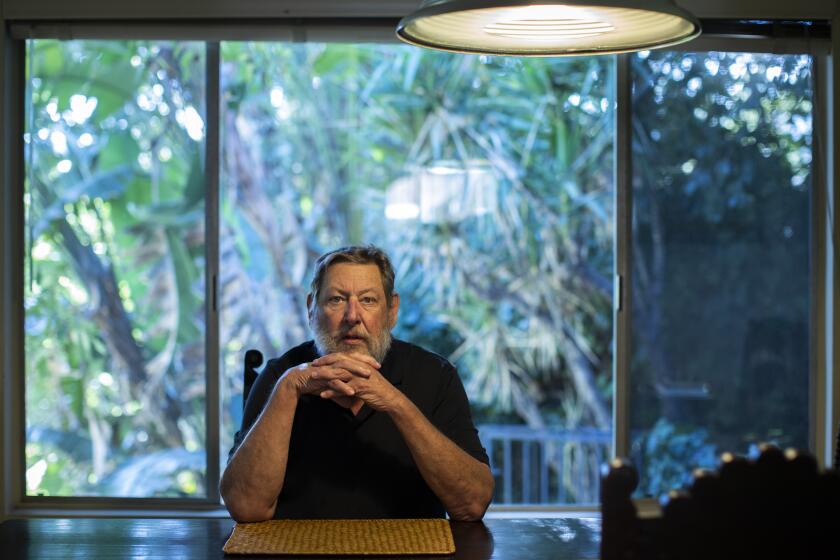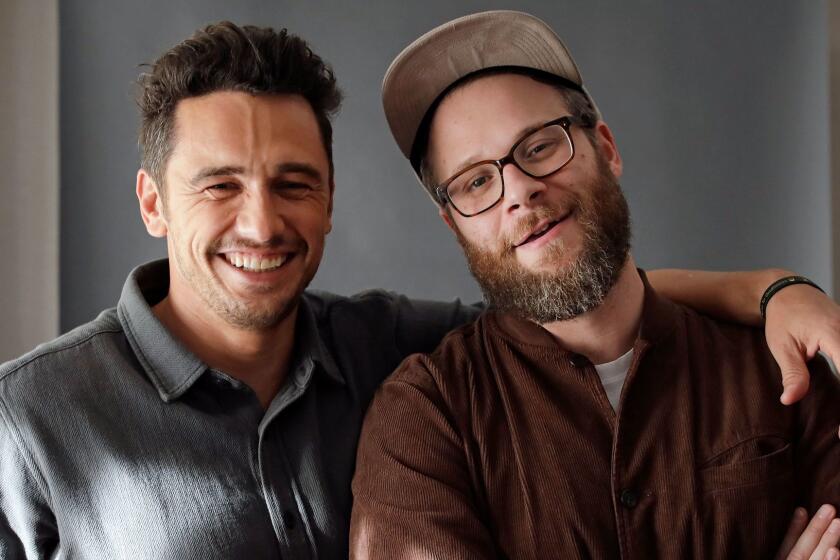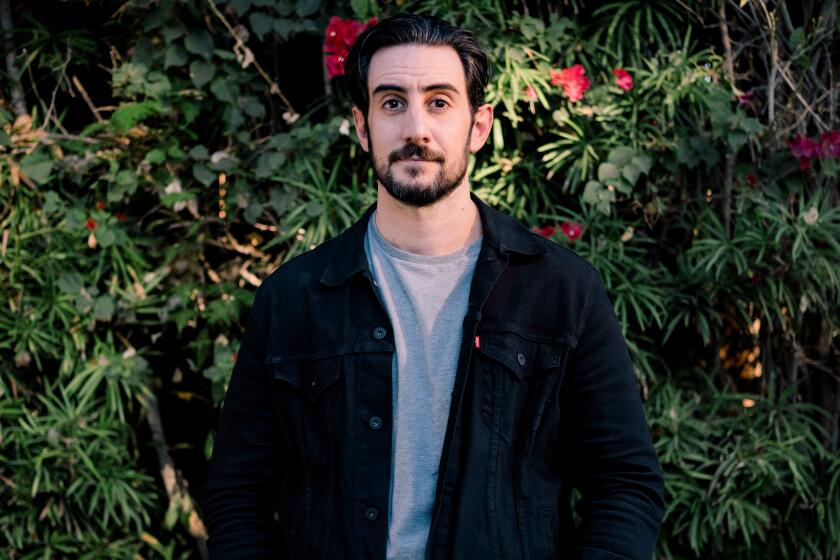Tom Bissell learned to let go of literary ambition. It made his fiction better
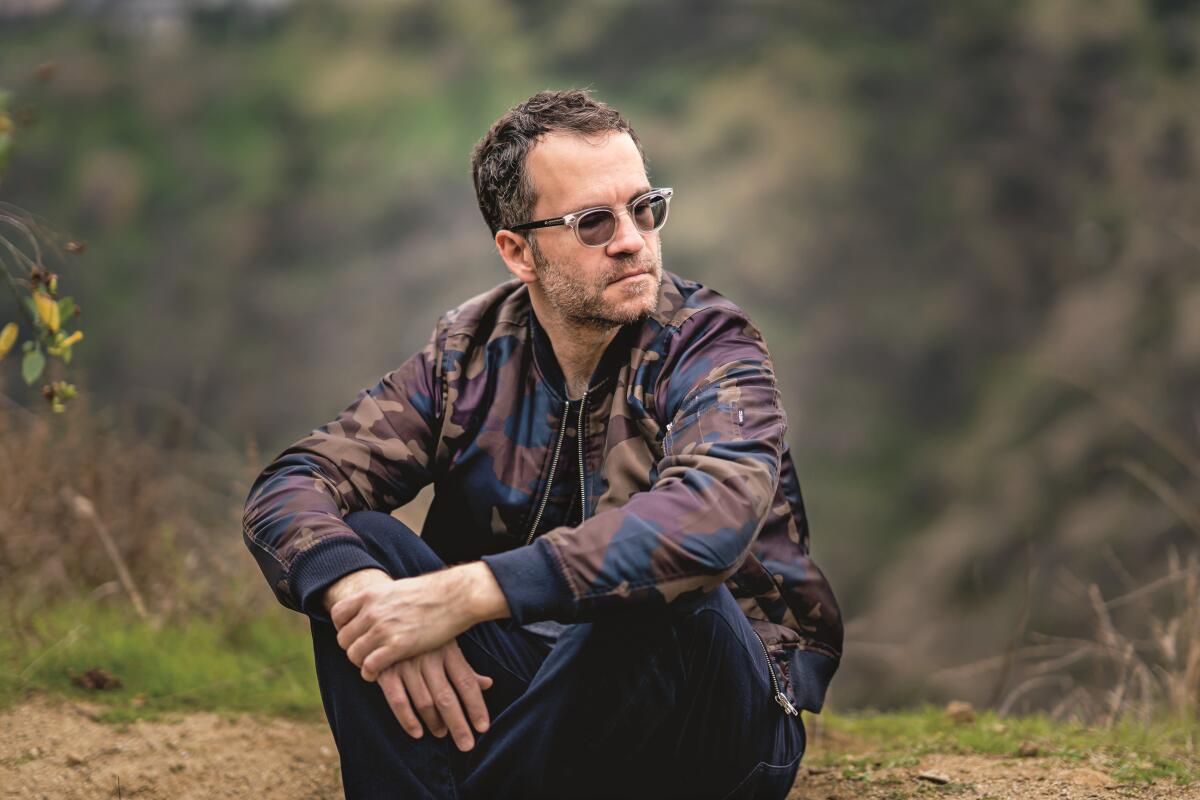
- Share via
On the Shelf
Creative Types: And Other Stories
By Tom Bissell
Pantheon: 224 pages, $27
If you buy books linked on our site, The Times may earn a commission from Bookshop.org, whose fees support independent bookstores.
When a writer writes a short story about a writer, there’s always a temptation to read it as autobiographical. But when a writer writes an entire book of such stories, which is what Tom Bissell has done in his new collection, “Creative Types,” it registers as a taunt: I dare you to look for me in these pages.
“I hate stories about writers,” Bissell acknowledged during a recent call from his home in Laurel Canyon, where he’s lived for seven years. Nevertheless, as the stories began to accumulate, he began to wonder: “What the hell am I doing? Why am I doing this?”
What he has done, with “Creative Types,” is found a way to address his long and unpredictable career as a writer — which has taken him from a rich travelogue about the disappearing Aral Sea (“Chasing the Sea”) to a collaboration adapted into a James Franco vehicle (“The Disaster Artist”) with many detours along the way. Not only do the new stories challenge the stereotypes that cloud certain modes of writing, they’re shot through with humor — often at the author’s expense.
Even the title of the new book is a subtle jab. “It does have a sort of implied disdain about it,” Bissell said. “‘Oh, he’s a creative type.’ What does that imply? It implies flight, it implies indecisiveness. It implies someone who’s maybe pretty good at a couple things, but not really good at any one thing.” For Bissell, the stories are “a way to address my weird anxieties about my own career, a way to lighten the psychic burden by poking fun at myself.”
The story “My Interview with the Avenger” adopts the freewheeling style of an Esquire magazine piece circa January 2007 (the date is important). When a writer scores an interview with a vigilante crime fighter, the so-called Avenger turns the tables by asking the writer probing questions about why he’s given up writing fiction in favor of hack journalism.
Sampling chiles and rosé with an author whose influence in L.A. far exceeds his fame — though new novel “Shaky Town” might change that.
That one feels close to home. For many years Bissell subsidized his literary fiction by writing long travel pieces for magazines, but after the recession in 2008, those assignments vanished virtually overnight. Bissell realized, “I’ve got to figure something out. I need a new area to dive into here.”
He made an unusual pivot, though a canny one — to video games. After publishing the book “Extra Lives: Why Video Games Matter,” Bissell received opportunities to work in the industry he’d written about. He jumped in with both feet but not without trepidation.
“There was a part of me that was wondering, What have I done to my career? Not a big part, but a small part wondered if writing for and about this misunderstood art form of video games, which in polite literary company is about as popular as measles, was going to lower people’s estimation of me as a writer.”
In “Extra Lives,” Bissell wrote about falling into a state of dissolution while living abroad, playing video games and doing lots of drugs. He revisits this period in “Love Story, with Cocaine,” a piece in the new collection about a former video game writer. The story takes a metafictional turn when the narrator confesses, “I want to write about interesting people, but the only things I ever write are about writers.”
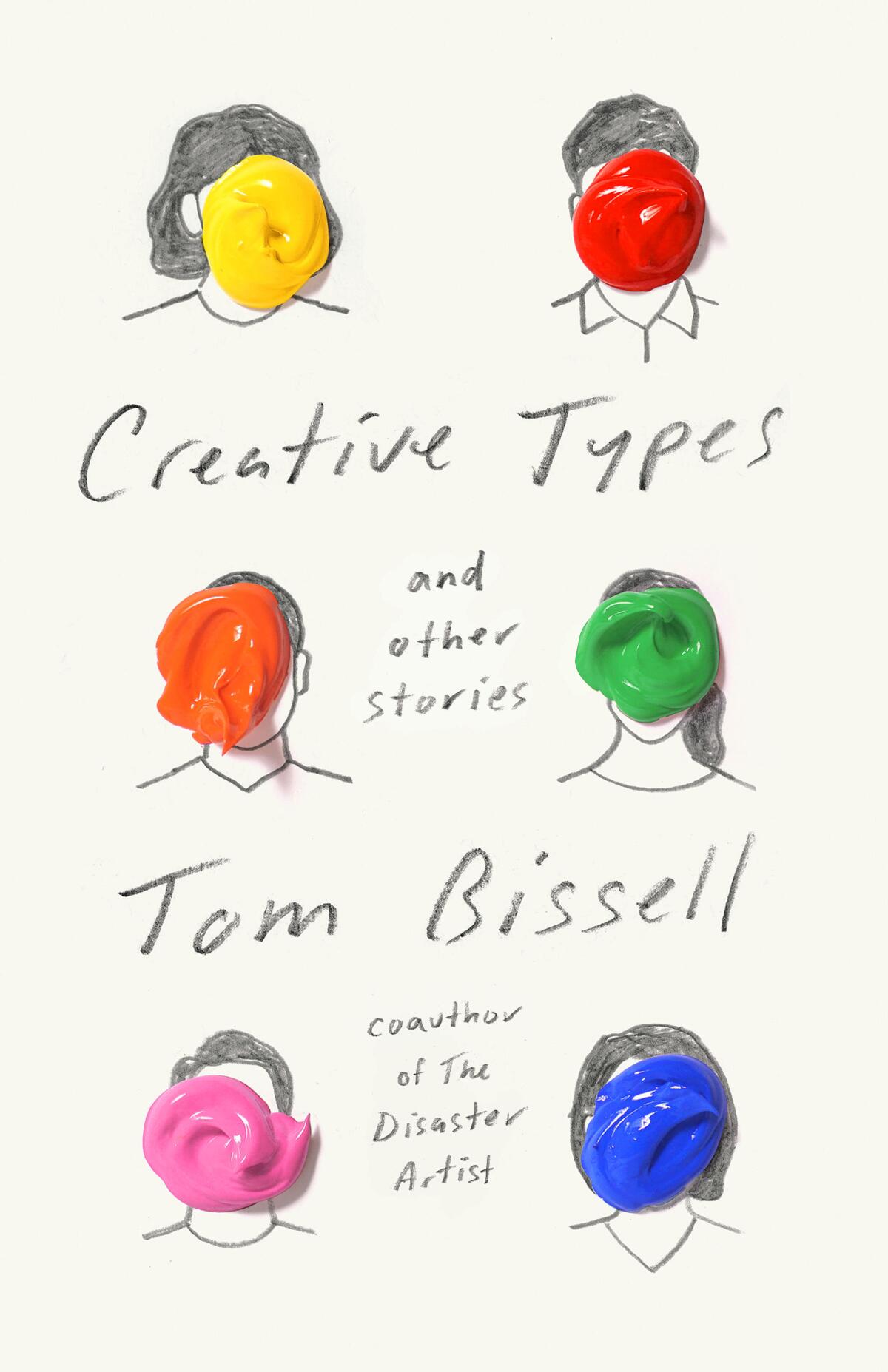
Now on the cusp of 50, Bissell has learned not to obsess over the things he fretted over in his youth. “I just don’t really think about capital L literature anymore. I write because it pleases me and I write stuff that I would want to read and I don’t really think terribly much about how other people think of me. I think that’s a healthy place because you realize when you get older that people aren’t thinking about you terribly much anyway.”
Inhabiting the minds of people who care a great deal what others think of them became a way of working out what Bissell calls the “residual shame” of falling short of some impossible standard. “Part of the goal of growing up as an artist is making art that makes you happy and brings you satisfaction, stuff you can feel proud of — even if it’s for-hire work. And the rest of the career stuff, where you slot into the contemporary literary reader’s pantheon of important writers, is beyond your power to determine.”
Four years ago, during the making of “The Interview,” the North Korea-provoking comedy that would go on to flirt notoriously with history in its own unpredictable, stranger-than-fiction ways, James Franco found the strange and vaguely Eastern European patois of cult movie icon Tommy Wiseau spilling out of his mouth.
This kind of career serenity prayer led to Bissell’s biggest breakthrough: “The Disaster Artist,” which he co-wrote with the actor Greg Sestero about Sestero’s experiences making the cult film “The Room,” which many regard as the worst film ever made. The book became a bestseller and was adapted into an award-winning film in which Franco plays the mercurial director Tommy Wiseau. It almost didn’t happen.
Bissell had never written a book with another writer before. Again, he wondered if it was the right move, but he was so captivated by the material he threw caution to the wind. “The careerist would have said, ‘Tom, don’t collaborate with a male model actor on his life story about making a bad movie.’”
Hollywood is full of bad beat stories of roles not taken and jobs passed over due to career concerns. Bissell learned early, though, that failure is often the crucible for creative growth. After his heartfelt memoir, “The Father of All Things: A Marine, His Son, and the Legacy of Vietnam,” performed poorly despite favorable reviews, it took many years for him to accept that sales weren’t a reflection of a book’s merit.
“The Disaster Artist” serves as the inspiration for one of the most intriguing stories in the collection. “James [Franco] and I briefly talked about collaborating on a book together years ago,” Bissell said, “and out of this conversation we had about what it could be, I came up with this kooky idea of a Hollywood story where the downtrodden assistant is actually the psychopath and everyone else is normal.” This previously unpublished story features some familiar characters named “James” and “Seth.”
More recently, Bissell experienced another radical pivot. He was a writer and developer of the adaptation of Paul Theroux’s novel “The Mosquito Coast,” and he was working on an adaptation of David Kushner’s book “Masters of Doom,” about the inventors of the first-person shooter genre, before it was scuttled by COVID-19.
Although the creative types in Bissell’s book are often subject to the unspeakable horror of the literary life, for an author who puts so much of himself into his characters, they serve as an affirmation — “a reminder about how open we need to be as creative types and how wildly unpredictable your life can be and your work can be. I have no idea if, you know, three days from now, something’s gonna fall into my lap that could change the course of my writing life. And being alive to that possibility to me is the most exciting thing about being a writer.”
Dan Ozzi’s ‘Sellout: The Major-Label Feeding Frenzy That Swept Punk, Emo, and Hardcore’ tracks the fortunes of Jawbreaker, Jimmy Eat World and others.
Ruland’s next book, “Corporate Rock Sucks: The Rise and Fall of SST Records,” will be published in April.
More to Read
Sign up for our Book Club newsletter
Get the latest news, events and more from the Los Angeles Times Book Club, and help us get L.A. reading and talking.
You may occasionally receive promotional content from the Los Angeles Times.
